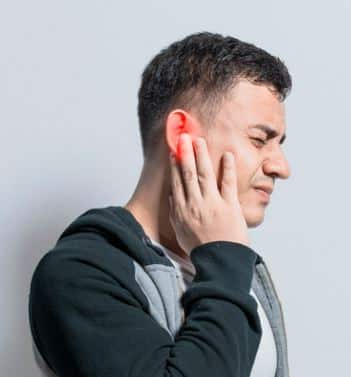Last week we discussed a bit about marijuana legalization and its general effects. For the effects of marijuana on hearing, however, the jury is still out.
Probably due to the drug classification, there has been minimal study of marijuana and its effects on hearing, as well as on some other body functions. The data available in 2017 are largely anecdotal and much of the hard research is yet to be funded and conducted.
The National Institute on Drug Abuse (2015) indicates that a probable cause of the lack of research also stems from the Food and Drug Administration (FDA) requiring carefully conducted studies (known as clinical trials) in hundreds to thousands of human subjects to determine the benefits and risks of a possible medication. So far, researchers have not conducted enough large-scale clinical trials that demonstrate that the benefits of the marijuana plant (as opposed to its cannabinoid ingredients) outweigh its risks in patients it is meant to treat.
While there seems to be mostly anecdotal indications on the benefits or detriment of marijuana on hearing, there appear to be some logical indications as well as some seminal research that the drug might have some benefit for tinnitus.
New Thoughts of the Origin of Tinnitus

Roughly 15 percent of all adults in the United States have tinnitus.
For a long time, the cause and source of tinnitus remained largely unknown. However, recent insights from various researchers funded by institutions like the Veterans Administration (VA), National Institutes of Health (NIH), and the American Tinnitus Association (ATA) are challenging the prevailing notion that tinnitus is solely an auditory or ear-related disorder. Instead, these studies suggest that tinnitus may originate as a brain issue.
Traditionally, older theories predominantly focused on inner ear malfunctions as the primary cause of tinnitus. These theories proposed factors such as misshapen or damaged hair cells or insufficient blood supply to the ear. However, audiologists and otolaryngologists have long observed a curious phenomenon: even when the auditory nerve is severed, tinnitus can persist in the “disconnected” ear, sometimes worsening in intensity.
Dr. Thanos Tzounopoulos, the Chair of Auditory Physiology in the Department of Otolaryngology at the University of Pittsburgh, has emerged as a prominent figure in tinnitus research. His groundbreaking work challenges the prevailing belief by suggesting that the locus of tinnitus lies within the brain, rather than the ear itself. Dr. Tzounopoulos proposes that tinnitus may be triggered by misfiring neurons in the auditory center of the brain, possibly arising from an imbalance between inhibitory and stimulatory signals in the auditory system.
Essentially, the brain erroneously responds to nonexistent sound, giving rise to the perception of tinnitus. Dr. Tzounopoulos and his team began their studies in 2009, refining their understanding in 2011, and have continued their investigation ever since. Their work provides a new perspective that shifts the focus from the ear to the brain in understanding the underlying mechanisms of tinnitus.
This evolving understanding has significant implications for both research and clinical practice. If tinnitus is primarily a brain-related issue, it highlights the importance of exploring treatments and interventions that target the central auditory system rather than solely focusing on the peripheral auditory system. This shift in perspective opens up avenues for novel therapeutic approaches and offers hope for more effective management of tinnitus in the future.
While our understanding of tinnitus is still a work in progress, the research conducted by Dr. Tzounopoulos and other dedicated investigators provides valuable insights into the complex nature of this condition. By broadening our perspective and recognizing the role of the brain, we are better equipped to advance our knowledge, develop innovative treatments, and ultimately improve the lives of those living with tinnitus. The ongoing investigations in this field hold great promise for unlocking the mysteries of tinnitus and paving the way towards more comprehensive and effective solutions for those affected by this persistent condition.
Marijuana Use: Could it Actually Help Tinnitus Sufferers?

Could tinnitus sufferers benefit from cannabis?
Naturally generated cannabinoids in the body are one of the inhibitors within the auditory center. In 2011, Dr. Tzounopoulos and his team published research that demonstrated exaggerated activity in the brains of mice with tinnitus. They also made breakthroughs in the understanding of the endocannabinoid system, which was found to control aspects of brain plasticity. It is this activity that reacts to marijuana as these cannabinoids are present in the marijuana.
Dr. Tzounopoulos compares tinnitus to chronic pain and addiction, which also seem to involve plasticity in the brain and are treated with medical marijuana. While this does not shed light on the precise mechanism by which medical marijuana provides relief for tinnitus, it does show the components of the mechanism.
Another recent theory of tinnitus is that it is a form of sensory epilepsy, sometimes arising from neuronal hyperactivity in the brainstem cochlear nucleus. The exact relation of tinnitus and seizure is not known but a few established facts can assist in the understanding how tinnitus and seizures might be connected. Of course, tinnitus is an auditory abnormality wherein a person hears ringing or buzzing sounds in the ear or head regions in the absence of any actual external sounds. Seizures are characterized by repeated movements of the body or body parts, sometimes violently. The intensity of both tinnitus as well as seizures can differ and present symptoms in varying degrees of intensity.
Both the conditions of tinnitus and seizures occur because of an irregularity of the electrical activities in the brain. This irregularity is usually caused by a nervous system disorder or a pathological condition in the neck and head regions. There are other causes as well that can contribute to the occurrence of both these conditions. Since the causes vary widely in both disorders sometimes the exact reason for tinnitus and seizure is difficult to pin point. At the same time, since most of the causal factors usually rise from similar root causes in many instances, it is possible that tinnitus and seizures can indicate a common origin – though they need not always coincide.
Increasing evidence suggests that cannabinoid drugs can also have antiepileptic effects. And since the origins of both tinnitus and seizures are thought to be similar, then the possibility that cannabinoids could be beneficial holds some promise.
Of course, medicinal cannabis has been prescribed to help people cope with some of the conditions that can cause tinnitus. In those cases, it’s easy to see how marijuana might help. Even among those people whose tinnitus doesn’t respond to marijuana, it may help alleviate some of the stress, anxiety, and insomnia that plague tinnitus sufferers.

Cannabis Rx for Tinnitus Sufferers – More Research Needed
One thing many people forget is that a marijuana prescription isn’t like a regular pharmaceutical prescription–it is essentially permission for an individual to experiment with medical-grade cannabis and determine if it helps their symptoms. Some tinnitus sufferers may find that it does, while others may find that it worsens them.
While there is no recommendation for the use of marijuana for tinnitus or hearing loss cited in the literature, it is extremely likely that new research studies will be conducted now that marijuana is legal in several states with more to come in the future.
References:
Eye and Ear of Pittsburgh (2017). Tinnitus and auditory science. Retrieved January 9, 2017.
Marijuana Doctors (2013). Medical marijuana and tinnitus. Retrieved January 9, 2017.
Middleton JW, Kiritani T, Pedersen C, Turner J, Gordon M, Shepherd G, Tzounopoulos T. (2011). Mice with behavioral evidence of tinnitus exhibit dorsal cochlear nucleus hyperactivity due to decreased GABAergic inhibition. Proc Natl Acad Sci U S A 108(18). Retrieved January 10, 2017.
MedicalMarijuanablog.com (2016). Marijuana a solution to tinnitus. Retrieved January 9, 2017.
National institute on Drug Abuse (2015). Is marijuana medicine? Drug Facts. Retrieved January 10, 2017.
Tuneouttinnitus.org (2017). A neurological tinnitus study. Retrieved January 9, 2017.
About the author

Robert M. Traynor, Ed.D., is a hearing industry consultant, trainer, professor, conference speaker, practice manager and author. He has decades of experience teaching courses and training clinicians within the field of audiology with specific emphasis in hearing and tinnitus rehabilitation. He serves as Adjunct Faculty in Audiology at the University of Florida, University of Northern Colorado, University of Colorado and The University of Arkansas for Medical Sciences.
**this piece has been updated for clarity. It originally published on January 10, 2017







